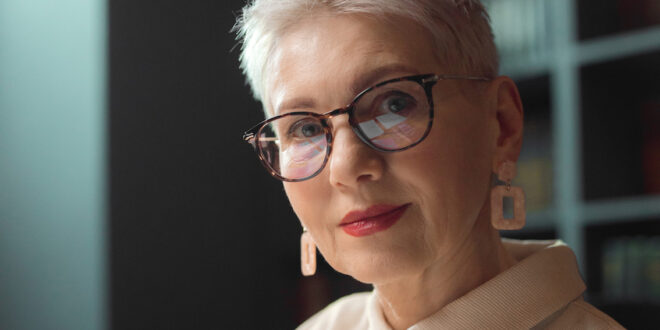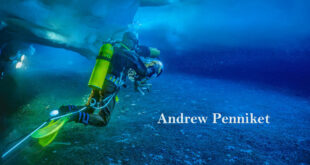Article extracted from Trust Yourself First by Doris Sew Hoy, New Degree Press, RRP $34.99
You may have heard the saying “play to your strengths” as opposed to focusing on your weaknesses. But do you know what your strengths are? Do you know the full range of your strengths, not just the ones you use, but also the ones you are not using? Knowing what your strengths are is another fundamental building block to “know thyself” more, as well as being more intentional in choosing (even if the ability to choose may require development) which strengths to use and how much to use.
Much of my work as a coach is about helping clients to discover and develop their resources, one of which is their range of strengths. I believe we all have capacity for growth and development of our potential. That potential is like the potential contained in an acorn. Every acorn has a seed within that contains the capacity for developing into a beautiful oak tree. How that seed actually grows and develops will depend on the quality of the soil, the amount of sunlight and water, the surrounding landscape, and time. How well we, as human beings, grow and develop will depend on the environment we are nurtured in, the quality of relationships and experiences we have, and the decisions we make or don’t make in our life.
I used to think a strength was “something you’re good at”. I’ve learned that there’s much more to understanding strengths than just that, and that some things that you might be good at are actually not strengths, but just learned behaviors which drain you. For example, I’m good at inputting data into a spreadsheet with great accuracy and speed, but I wouldn’t call data entry an inherent strength of mine. It’s simply a skill I needed to acquire and a task that I needed to do as part of my role as an analyst, but I didn’t feel energized after I inputted data apart from knowing that task was done.
Some years ago, a colleague asked me to try out a new psychometric questionnaire or tool called “realise2”. This questionnaire was developed by Dr. Alex Linley, the founding director of the Centre of Applied Positive Psychology at the University of Leicester, and his team. realise2 aims to find out what your range of strengths is. Linley defined a strength in a particular way that goes way beyond just “what you’re good at.”
A strength is:
“a pre-existing capacity for a particular way of
behaving, thinking or feeling
that is authentic and energizing to the user,
and enables optimal functioning, development and performance.”
Let’s dissect Linley’s definition and take a closer look at what it actually means:
- “A pre-existing capacity” means that this capacity is innate. These capacities can be viewed as “gifts” you’re born with. These “gifts” show themselves in one of three ways:
- The way we behave or act,
- In the way we think, or
- In the way we feel.
- “That is authentic and energizing to the user” means that, when we tap into our gifts and use them, somehow we feel more like the “real me”; we feel at ease with ourselves and resourceful.
- “Enables optimal functioning, development and performance” means when we use our gifts, we work efficiently and effectively, becoming the best version of ourselves and achieve quality relationships and well-being.
Realized and Unrealized Strengths
One’s strengths can be further classified as “realized” (they are being used) or “unrealized” (not being used for whatever reason. An unrealized strength might be because there is no awareness that one has this capacity or that there hasn’t been an opportunity to use or develop the capacity.
Linley also makes the distinction between a realized strength and a learned behavior. A learned behavior refers to skills we’ve developed to perform well at, possibly because we had to do them as part of a job, but we don’t get energized when we do it, like how I mentioned I’m good at data entry and administrative tasks. I had to do them, but I find doing them to be draining of my energy.
Furthermore, there is a fourth classification called “weaknesses”, which are behaviors you’re not good at doing AND you find draining. For example, my husband has a weakness in making plans, especially plans for holidays. He’s not good at that, lacking attention to detail about logistics and timing. I recognize his weakness in this area, and thus I do most of the planning, otherwise we’d never go anywhere together!
When you become clearer about what activities or tasks energize you, and what drains you, you can then be more selective in what you decide to do. Be aware not to overuse a particular strength, as then it can become a weakness. Instead, the advice is to:
- Use your realized strengths to best effect, but not too much, otherwise it can become a weakness.
- Find opportunities to use and develop unrealized strengths.
- Moderate your use of learned behaviors – don’t use them too much, otherwise you’ll feel drained. Find someone who has a strength in this area and maybe suggest swapping tasks.
- Find ways to stop having to use your weaknesses.
Applying the Results
I couldn’t wait to try out this “realise2” strengths questionnaire. I wanted to know what my gifts, or strengths, are. My results were very interesting. I was amazed, shocked actually, to see that my top unrealized strength was that of narrator or storyteller. My first thought was, “Hey, this can’t be right!” and I started to have real doubts about the validity of this new tool. I knew I loved listening to stories, and I knew that storytelling was something I’d like to be able to do well, but having tried a few times and, in my opinion, failed miserably, I stopped trying.
It wasn’t until my fellow coach debriefed me about my results that we uncovered a big limiting belief that must have been living in my subconscious for decades. That limiting belief was “I’m no good at telling stories”, and so I just stopped trying. And where did such a belief come from? I remembered a few instances where one or two people would comment “Hurry up, Doris. What’s your point?” Or I’d be telling a story and then see someone’s eyes glaze over, and that inner critic inside my head would confirm any doubts I’d have about my storytelling ability: “You’re making a hash of this, so better stop.”
Maybe the results of the questionnaire were valid. Maybe I did have an unrealized strength as a narrator. I decided there and then to try harder and develop this gift and move it from being unrealized to a realized strength. That’s one of the reasons why I joined Epsom Speakers Club, a public speaking group part of Toastmasters International. I’m pleased to say that my storytelling muscle is getting stronger every day.
I wonder what unopened gifts are sleeping inside of you, waiting to be woken up and developed? Think of the times when you’ve felt more yourself, more authentic and energized. Ask yourself, “What was I doing when I felt like that?” These are clues to your gifts. Don’t make the mistake I made, judging my own level of competence as negative and stop trying. With any skill, like an acorn, it takes time to flourish and bloom. It takes commitment, dedication, and persistence to improve.
I’ll be discussing how you can apply your strengths more to get what you want in Part 3 of this book.
Personal Values and Finding Your Path
Strengths may be used in the pursuit of “good” objectives, like world peace, or “bad” objectives, like inciting violence or hatred. There is nothing implicit within a strength that determines it as good or bad. What’s important in how you use your strengths is to be clear about the purpose or goal you hope to achieve. And that leads me to look at what your personal values are. These are qualities and beliefs that are important to you.
Knowing what our personal values are can motivate us and guide our decisions. As you live by your values, they form the foundation for building greater trust in yourself.









Join the Discussion
Type out your comment here:
You must be logged in to post a comment.